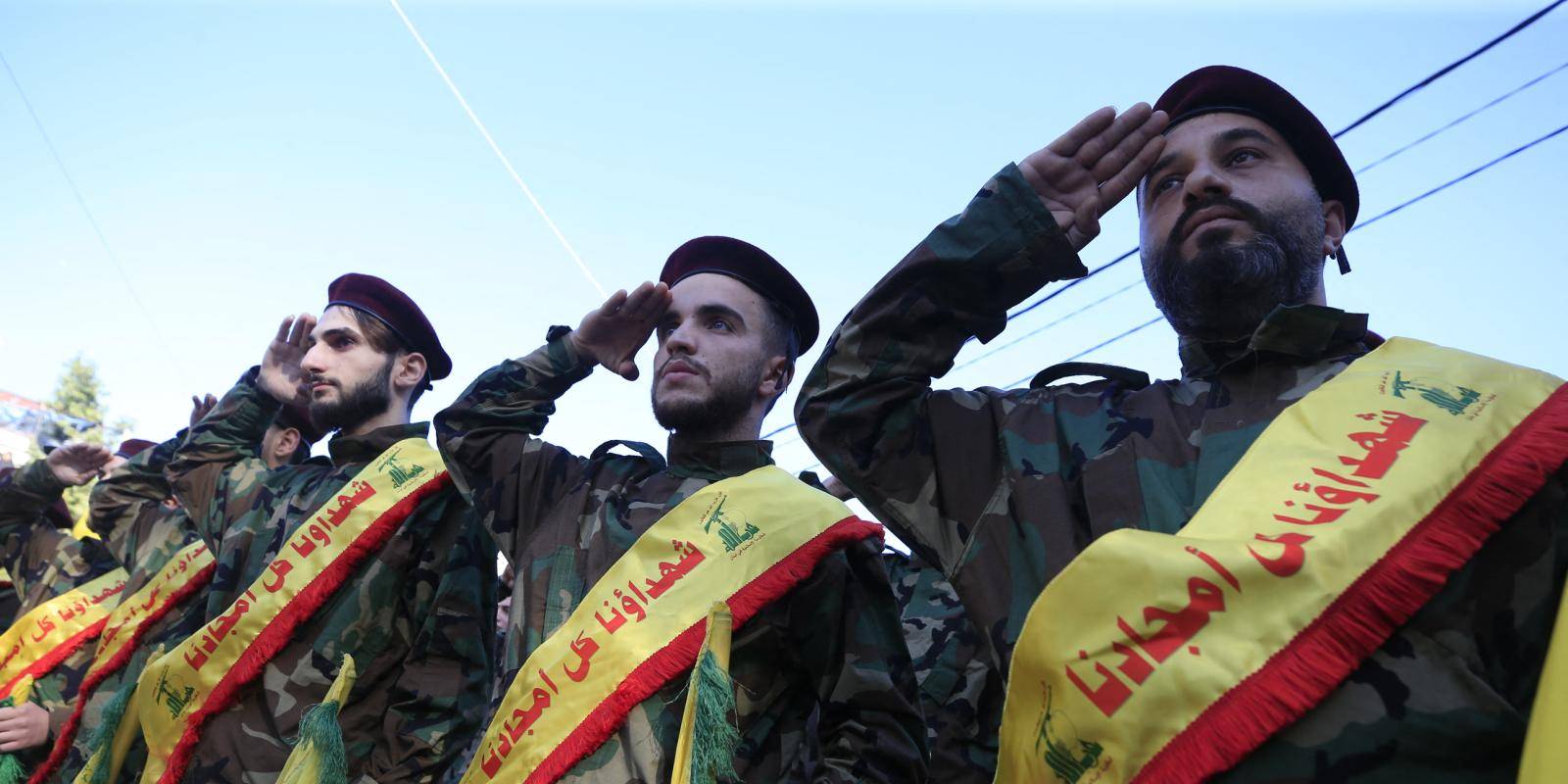
Israeli Defense Minister Yoav Gallant declared on 25 February that Israel ‘will keep attacking Lebanon regardless of what happens in Gaza’ – and indeed mutual strikes by Israel and Hezbollah are continuing.
Fighting between the two sides began in the aftermath of Hamas’ assault on Israel on 7 October, with Hezbollah being the first to attack Israel on another front.
Although Hezbollah has celebrated some military successes over the past four months, the war in Gaza is testing its strategic capability. Despite being the instigator of the fight, Hezbollah is not setting the agenda. Its main priority is survival rather than victory.
Over the last four months, Hezbollah has been trying to balance retaining its credibility as a major actor in the Iran-backed ‘axis of resistance’ with steering clear of escalation with Israel. This is because Hezbollah knows that there is little appetite for all-out war among its supporters – and also because such a war would end up hurting, not serving, Iran.
The threat of an expanded war
Any serious spread of the war into Lebanon would mean Israel fighting on two fronts, which in turn would probably necessitate US intervention to aid Israel. This would draw Iran itself nearer to war – something Tehran is keen to avoid.
Israel attacked Hezbollah sites in Baalbek in the Beqaa Valley in eastern Lebanon for the first time earlier this week.
Israel has also tried to avoid such a scenario, despite its threatening rhetoric. The majority of its attacks on Lebanon since October have carefully targeted Hezbollah sites and personnel, exposing the vulnerability of Hezbollah’s military and security apparatus.
However, in recent weeks Israel has increased the scope of its attacks in Lebanon. In addition to widening the geographical area of strikes in southern Lebanon, and its targeted strike that killed a Hamas official in the southern suburb of Beirut, Israel attacked Hezbollah sites in Baalbek in the Beqaa Valley in eastern Lebanon for the first time earlier this week.
This attack came shortly after the Syrian government complained to Lebanon about watchtowers installed on the Lebanese side of the border with Syria. The complaint claimed that the watchtowers, installed by the UK in 2014 to help the Lebanese Armed Forces counter smuggling, were being used for surveillance by a ‘third party’ – meaning Israel.
Hezbollah has mainly reacted to Israel’s increasingly aggressive campaign in Lebanon by escalating its rhetoric.
The complaint about the watchtowers indicates anxiety inside Syria – where Hezbollah has been fighting in support of the Assad regime since 2011 – about Israeli intelligence extending to all areas where Hezbollah operates, whether inside or outside Lebanon. Israel has indeed also been attacking Hezbollah and Iranian targets inside Syria since before 7 October.
Besides the occasional military success, such as its recent downing of an Israeli drone, Hezbollah has mainly reacted to Israel’s increasingly aggressive campaign in Lebanon by escalating its rhetoric.
In his latest speech on 16 February, Hezbollah’s Secretary General Hassan Nasrallah warned Israel that it will ‘pay in blood’ for its attacks on Lebanese civilians.
The situation may change: Israel has achieved significant military objectives in Gaza – obliterating most of Hamas’s military bases – and prospects for a pause in fighting are greater.
President Joe Biden said he hoped a temporary ceasefire would be in place by Monday. If that is extended into a long-term ceasefire, then Israel will no longer face a war on two fronts, allowing it to turn its full attention and resources to confronting Hezbollah.
Image — Members of the Lebanese Shiite Hezbollah movement salute during the funeral of Youssef Karam Jawad, a fighter killed during cross-border clashes with Israel in November 2023 (Photo by AFP via Getty Images)
Hezbollah may also increase its retaliation against Israel – but its inability to protect civilians in Lebanon from Israeli strikes will act as a brake on its actions.
Hezbollah’s compensation to its supporters
Hezbollah is already unable to compensate Lebanese civilian households which have been affected by Israel’s ongoing operations. This is in stark contrast to its large-scale compensation campaign in the aftermath of its war with Israel in 2006.
Hezbollah’s ability to harness funding for its supporters is not what it once was.
At that time, Hezbollah was swift in reassuring its community of supporters that their destroyed houses would be rebuilt – and largely delivered on the promise, due to Iranian backing and Gulf Arab funding of reconstruction in the south.
But Hezbollah’s ability to harness funding for its supporters is not what it once was, with a financial crisis in Lebanon, the halting of unconditional Gulf Arab aid to the country, and stepped-up Western sanctions on Hezbollah’s and Iran’s international financial networks.
For now, with Iran unwilling to be drawn into the Gaza war and domestic support uncertain, Hezbollah’s hands are tied – despite its large arsenal and an Israeli assault that is set to widen.
Instead, Hezbollah is focusing its efforts on trying to survive the current crisis, without attempting to steer events to its benefit. While it limits its ambitions, Israel may see an opportunity.
Tel Aviv is already using the war to pressure Lebanon to implement UN Security Council Resolution 1701, which stipulates the withdrawal of Hezbollah troops north of the Litani river. And so long as Hezbollah’s strategic capability remains limited, Israel may seek other ways to further weaken the group.
No comments:
Post a Comment